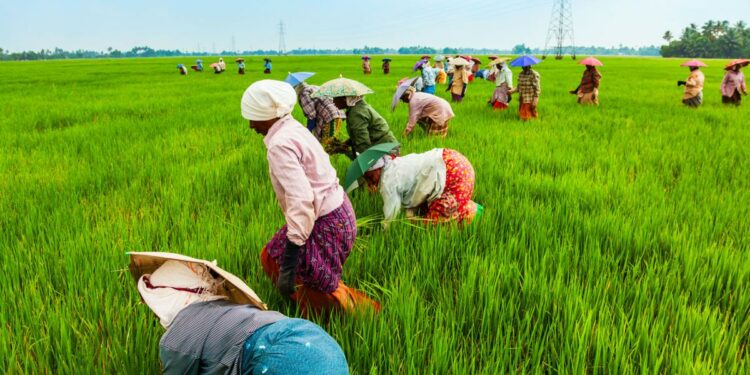Ghana’s $12.6bn agriculture sector struggles with funding amid climate change risks
Despite contributing an average of 20% to the nation’s GDP over the past five years, Ghana’s agriculture sector grapples with a funding shortfall and under-commercialization. Cash crops and commodity exports, pivotal to Ghana’s economic landscape, contribute 20-25% of total export revenues while engaging over 35% of the nation’s labor force.
Ghana’s agriculture sector, a cornerstone of its economy valued at $12.6 billion, faces mounting challenges exacerbated by inadequate funding and the looming specter of climate change, Financial Times analysis reveals.
Despite contributing an average of 20% to the nation’s GDP over the past five years, Ghana’s agriculture sector grapples with a funding shortfall and under-commercialization. Cash crops and commodity exports, pivotal to Ghana’s economic landscape, contribute 20-25% of total export revenues while engaging over 35% of the nation’s labor force.
C-Energy Global Holdings’ report underscores the sector’s systemic challenges, with only 15% of farms categorized as commercialized. Shockingly, a mere 4.0% of total bank lending in Ghana has been directed toward agriculture in the last five years, highlighting a stark disparity in financial support.
The report pinpoints key hurdles hindering sector growth, including low mechanization, deficient farm record keeping, and inadequate rural transportation infrastructure. These challenges not only impede sector performance but also deter financial institutions from investing in agriculture portfolios.
In response, the report calls for concerted interventions from financial institutions, notably the Agriculture Development Bank and Ghana EXIM Bank, to address funding gaps along the agriculture value chain. However, the urgency for broader, multi-stakeholder initiatives to bolster sector financing remains paramount.
Compounding these challenges is the ominous threat of climate change, which disproportionately impacts Ghana’s vulnerability despite its minimal contribution to global warming. Rising food prices, evidenced by a 23.8% increase in the national food price index in 2022, underscore the disruptive effects of climate-induced factors on food security and distribution.
Against this backdrop, collaborative efforts from public and private sectors are imperative to fortify Ghana’s agriculture sector against funding constraints and climate change risks. Addressing these challenges is essential to safeguarding food security and sustaining the sector’s pivotal role in Ghana’s economic resilience and growth trajectory.
Source:norvanreports


